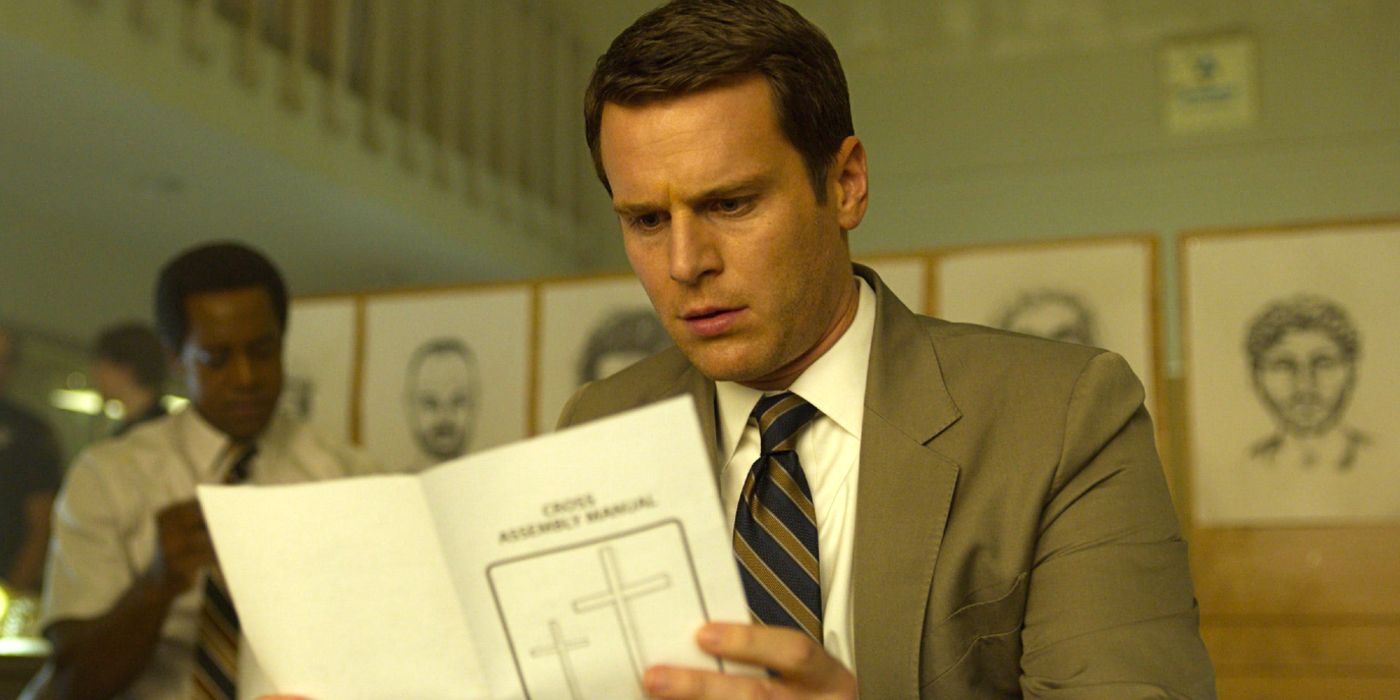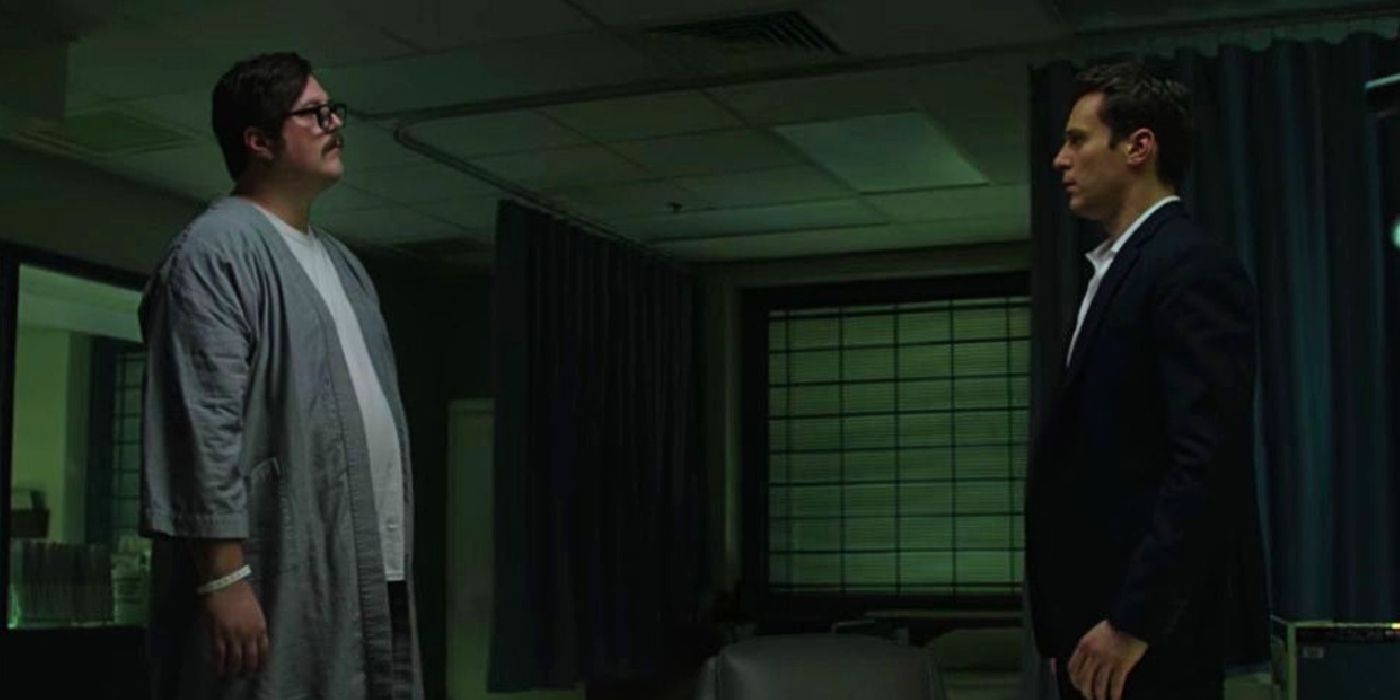David Fincher’s cult-hit serial killer drama, Mindhunter, puts the character of Holden Ford dead center, who, as per several theories, exhibits behavior closely associated with psychopathy. Much like the overall tone of the show, Holden has always been a complex character to parse, and his evolution over the course of two seasons has been intense, to say the least. Based on the true-crime book Mindhunter: Inside the FBI's Elite Serial Crime Unit by John E. Douglas and Mark Olshaker, Mindhunter delves deep into the FBI’s early efforts in the realm of criminal classification and profiling.
Despite being a landmark achievement in visual storytelling and peeling back the intricate layers of criminal psychology, Mindhunter did not receive the viewership deemed necessary for a third season. While things are still up in the air with regards to the fate of Mindhunter, fans of the show are left with a plethora of intriguing questions. While theories surround the eventual fate of the BTK Killer, along with the potential killers that might crop up in the show in the future, a seminal question that made the rounds was in regards to Mindhunter’s titular protagonist. What exactly goes on in the convoluted psyche of Holden Ford, and what lies ahead for him in terms of character growth?
Holden starts off as a hapless hostage negotiator, still grappling with the idea of “going by the book”, as opposed to his emerging ideas regarding criminal behavior. With the aid of Bill Tench of the Behavioral Science Unit, Holden is able to widen his horizons and garner a deeper understanding of deviant psychology, which is further enhanced via his conversations with Edmund Kemper. However, over time, a transformation is triggered within Holden, giving way to magnified traits already nascent within him. Do these traits place Holden within the psychopathic spectrum or is there a deeper, more nuanced explanation for his behavior?
How Holden Ford Exhibits Certain Textbook Psychopathic Tendencies
Robert D. Hare’s Psychopathy Checklist can be used to assess whether an individual’s behavior measures up against telltale traits of someone within this particular spectrum. Some of the key traits that line up with Holden’s behavior are delusions of grandeur, exuding a certain kind of charm for manipulation, a certain sense of callousness, and a display of selective empathy. It is important to note that right from the start, Holden experiences a considerable amount of hubris, which, loosely translated, is the notion that his ideas regarding criminal psychology are revolutionary. While some of the ways in which Holden chooses to approach the subject of nature vs nurture is groundbreaking when measured against the real criminal procedures of the time, he is clearly not the only one to raise these seminal questions. This is especially poignant in the nightclub scene in which Debbie questions Holden’s lack of awareness when it comes to Emile Durkheim’s theory on Deviance, which should ideally form the basis of Holden’s critical analysis.
An interesting reason why many theories posit Holden as a psychopath is the way in which he exudes glibness and a charm that is emotionally superficial, to the effect of manipulating those around him. This is especially true when he interacts with violent serial killers like Jerry Brudos, wherein he is able to extract key psychological insight from even those prone to pathological lying. The inherent difference between the way in which Tench and Holden process these interactions is highlighted in a scene in which the former is visibly disturbed by Brudos’ disturbing psychosexual tendencies. “If what we're doing doesn't get under your skin, you're more screwed-up than I thought, or kidding yourself.”, says Tench to a seemingly distant and unaffected Holden right after exiting the Brudos interview. Apart from this, Holden is shown to instinctively lie with ease, especially when expected to play a certain part in order to extract information from dangerous serial killers.
Why Holden Ford Does Not Completely Fit The Mould of Psychopathy
Despite checking many of the boxes in the Hare Psychopathy Checklist, Holden does not quite exhibit criminal psychopathy, as there are several traits that do not align with that of his behavior. Holden is neither parasitic nor lacking in long-term goals and certainly does not exhibit signs of juvenile delinquency and criminal versatility. While it is true that he is somewhat driven by a constant need for psychological stimulation, it is not necessarily a trait that paints him as a psychopath per se, especially one that indulges in criminal deviance. Perhaps the biggest telltale sign that Holden Ford is, in fact, not a psychopath is the intense anxiety he experiences in certain social scenarios, along with the various stressors that culminate in the panic attack he experiences at the end of Season 1. Journalist Jon Ronson, the author of The Psychopath Test, explicitly explains the difference between true psychopathy and pseudo-psychopathy by saying that the former is incapable of experiencing anxiety, or similar, self-debilitating emotions.
As per the startling degree of manipulation exhibited by Holden during his interviews, it is crucial to view and analyze them within their set contexts. While interviewers require to exercise a certain level of objectivity when interacting with high-functioning deviants like Kemper, a certain amount of empathy also needs to be established for the subject to open up about their past. This behavioral dilemma is also key to understanding the character of Will Graham in NBC’s Hannibal, who experiences an overabundance of empathy, allowing him to put himself in the killer’s shoes, hence blurring the line between the self and the other. Such an ability understandably comes at a great cost, which can be seen in the way in which Kemper’s hug emotionally affects Holden, and triggers a shutdown of his bodily defense mechanisms, culminating in an acute anxiety attack.
Anxiety Rises Like An Ophidian: Deep-Seated Trauma Or Personality Disorder?
Although Holden does not exhibit psychopathy, it is undeniable that he finds himself submerged in darkness like no other, losing parts of himself in the process. This has been prevalent right from the start, hinting at his clinical anxiety and the possible existence of a personality disorder. Holden is often incapable of parsing social cues, or gauge whether the person opposite him is experiencing acute discomfort. A good example of this is when Detective Ocaseck is visibly disturbed by Beverly Jean’s crime scene, and Holden is unable to empathize with him, asking Tench as to why they were cutting him slack. While this kind of selective empathy is common among the general populace, Holden is often incapable of assimilating divergent perspectives, despite the fact that he is mentally open to understanding the nuances of different behaviors. While some might argue that these traits place him somewhere within the autism spectrum, the key is to not define a complex character with the aid of marked boxes, as human psychology is much more complicated than it seems.
Mental Health Counselor Jonathan Hetterley of Shrink Tank posits that Holden’s behavior might be the result of vicarious trauma, or secondary trauma, which is the result of the lifestyle he is forced to lead on a daily basis. As a hostage negotiator, Holden is constantly in contact with high-anxiety scenarios often involving risk and the premise of possible casualties and death - which, by no means, is an easy thing to process repeatedly. Later on, Holden’s first-hand contact with serial killers as a criminal psychologist only adds to the experience, as now, he has direct access to the minds of some of the most dangerous killers in history, and most importantly, they have access to him. Could Holden’s social awkwardness, monotone detachment, and selective empathy be a byproduct of overwhelming vicarious trauma? This is not unlikely, as the same effects can be seen in Tench as well, who deals with it on a more emotionally visceral level.
Nevertheless, Holden Ford, without a shadow of a doubt, is a gifted individual. Being one of the few characters in Mindhunter that the audiences can root for, Holden paints an achingly real, flawed portrait of human behavior, especially when in contact with such psychologically taxing everyday scenarios. While next to nothing is known about Holden’s formative years, it is interesting to speculate how much of his character can be attributed to nature as opposed to nurture. Detachment as an emotional coping mechanism might work for Holden, but for how long? Will the dark crevices of his psyche spill over and disturb his equilibrium, as witnessed several times already in the show? One can only hope that a potential Mindhunter Season 3 allows us a greater glimpse into Holden’s mind, and hopefully, the caverns of his heart.




